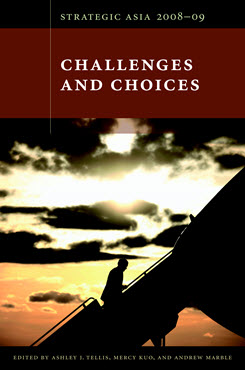The Korean Peninsula in U.S. Strategy
Policy Issues for the Next President
This chapter assesses U.S. strategy on Korea and proposes a policy agenda for the next administration.
EXECUTIVE SUMMARY
This chapter assesses U.S. strategy on Korea and proposes a policy agenda for the next administration.
MAIN ARGUMENT
Three main issues will define future U.S. strategy on the Korean Peninsula: (1) changes in South Korean views of North Korea and their implications for U.S.-ROK relations, (2) North Korea’s nuclear weapons development, systemic decline, and the consequences for nonproliferation strategy and regional diplomacy, and (3) South Korea’s increasing economic and military capabilities, their effects on regional geopolitics, and U.S. perceptions of long-term U.S.-ROK defense relations.
POLICY IMPLICATIONS
- The calls of South Korea’s new government for closer relations with the U.S. enhance the prospects for effective policy management and redefinition of alliance goals. The U.S. cannot, however, assume automatic policy congruence with South Korea. Competing strains of Korean nationalism could also prove a limiting factor in bilateral relations.
- The risks posed by North Korea’s nuclear weapons development and internal vulnerabilities remain palpable. The U.S. (in consultation with regional actors) would benefit from mitigating these risks, increasing access into North Korea, and managing the potential for disruptive change.
- U.S. policy toward North Korea will be most effective if it simultaneously addresses regional stability and nonproliferation; policy outcomes skewed to a single objective will be incomplete and quite possibly unworkable. It is important that the U.S. impart unequivocally to Pyongyang that full relations with the outside world will not be possible if North Korea seeks to retain its nuclear capabilities.
- The U.S. will want to give increased attention to a multilateral peace and security mechanism but only if non-adversarial relations among all states prove possible.
Strategic Asia
The Strategic Asia annual edited volume incorporates assessments of economic, political, and military trends and focuses on the strategies that drive policy in the region. Learn more about Strategic Asia.


